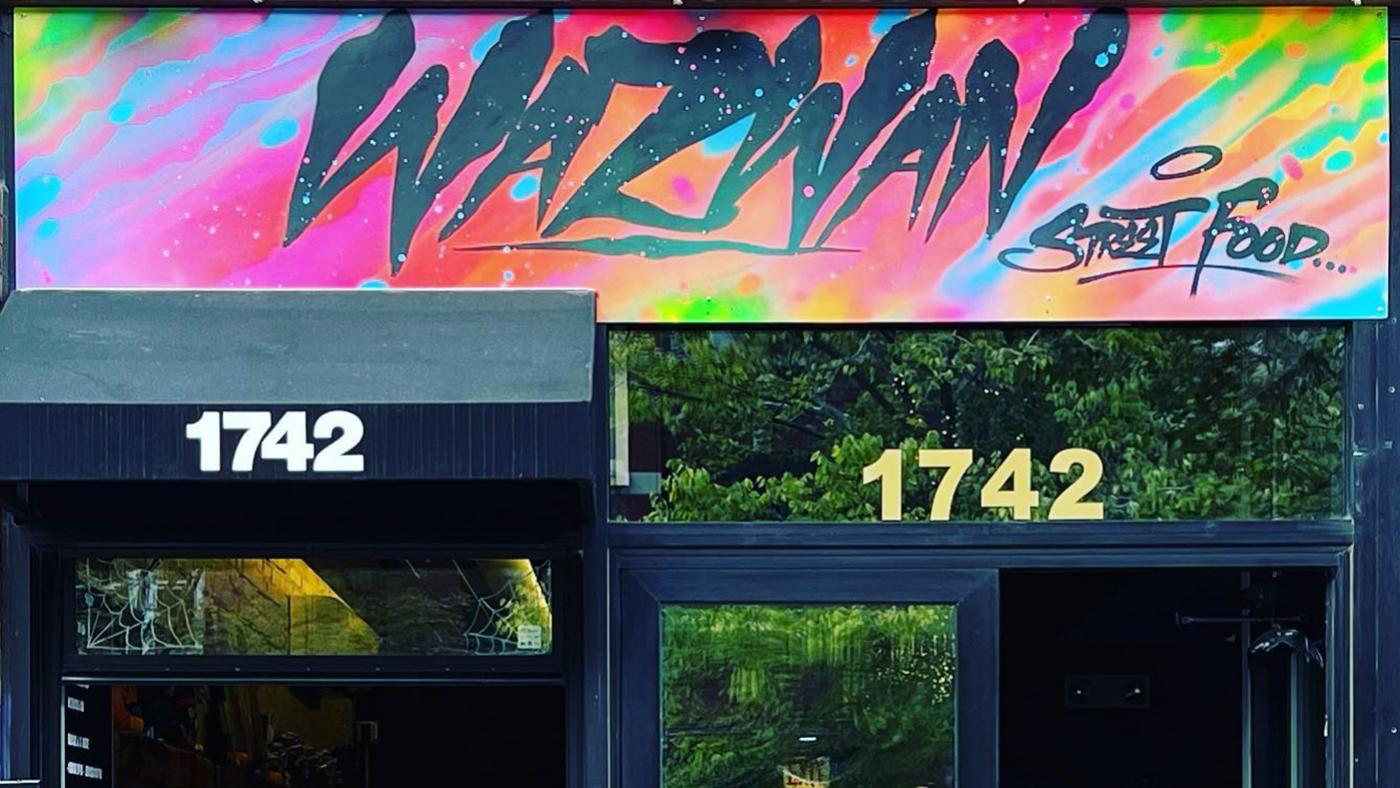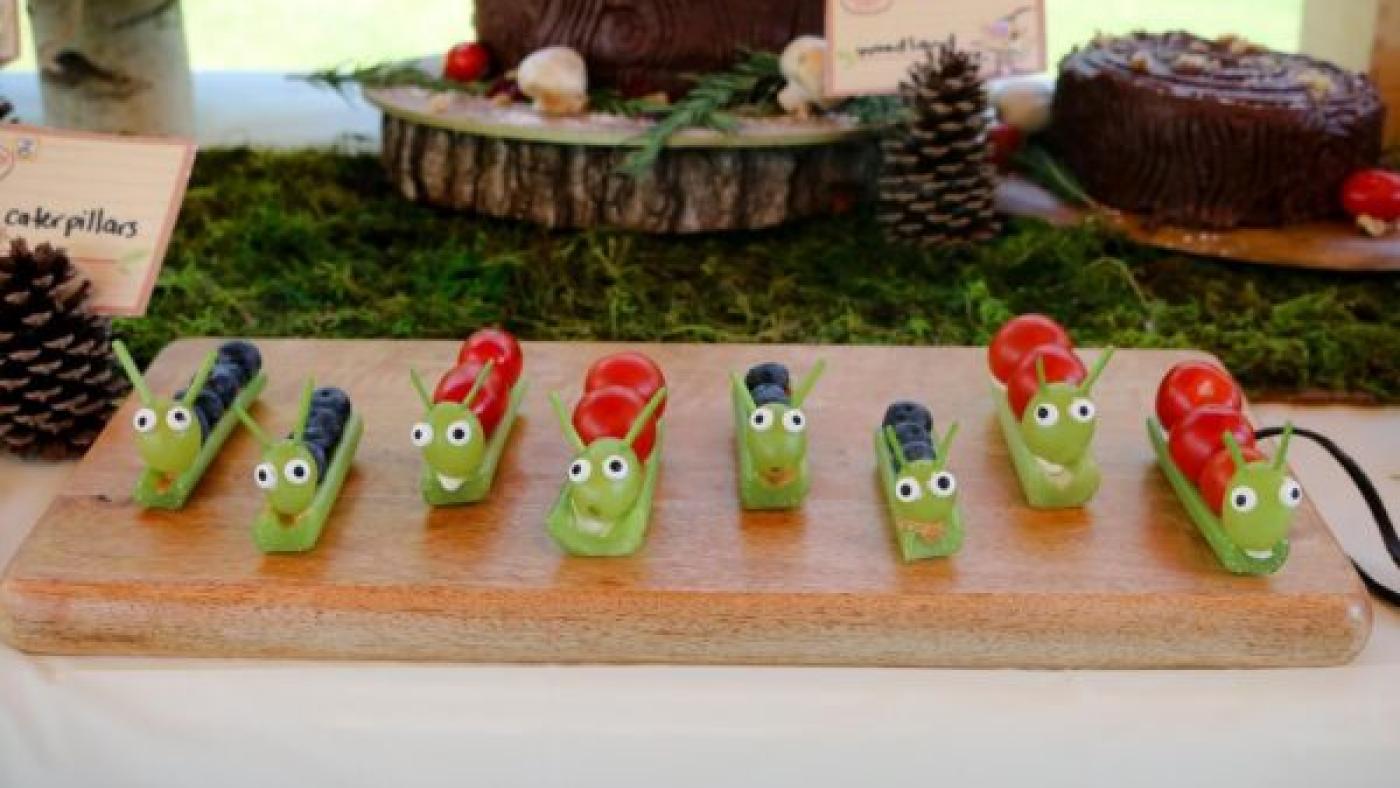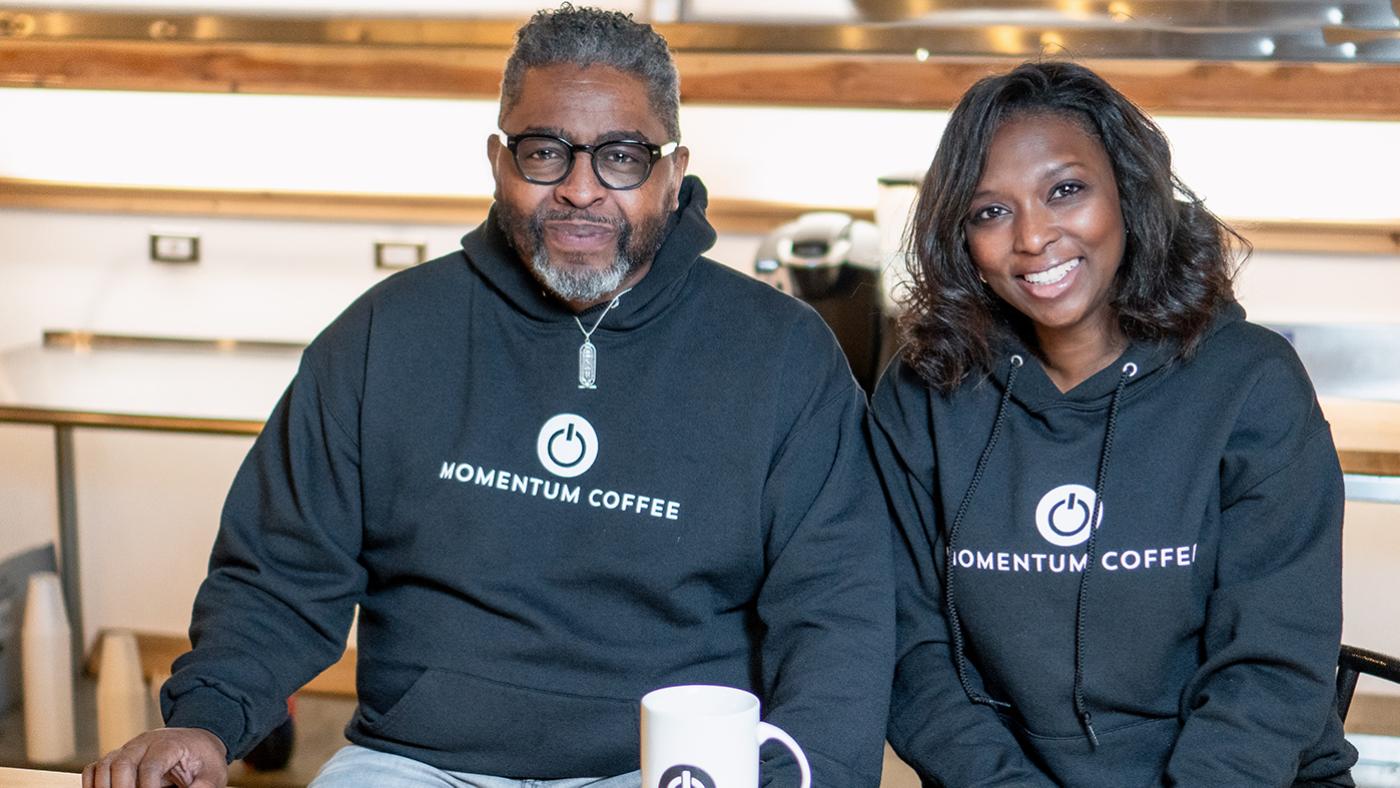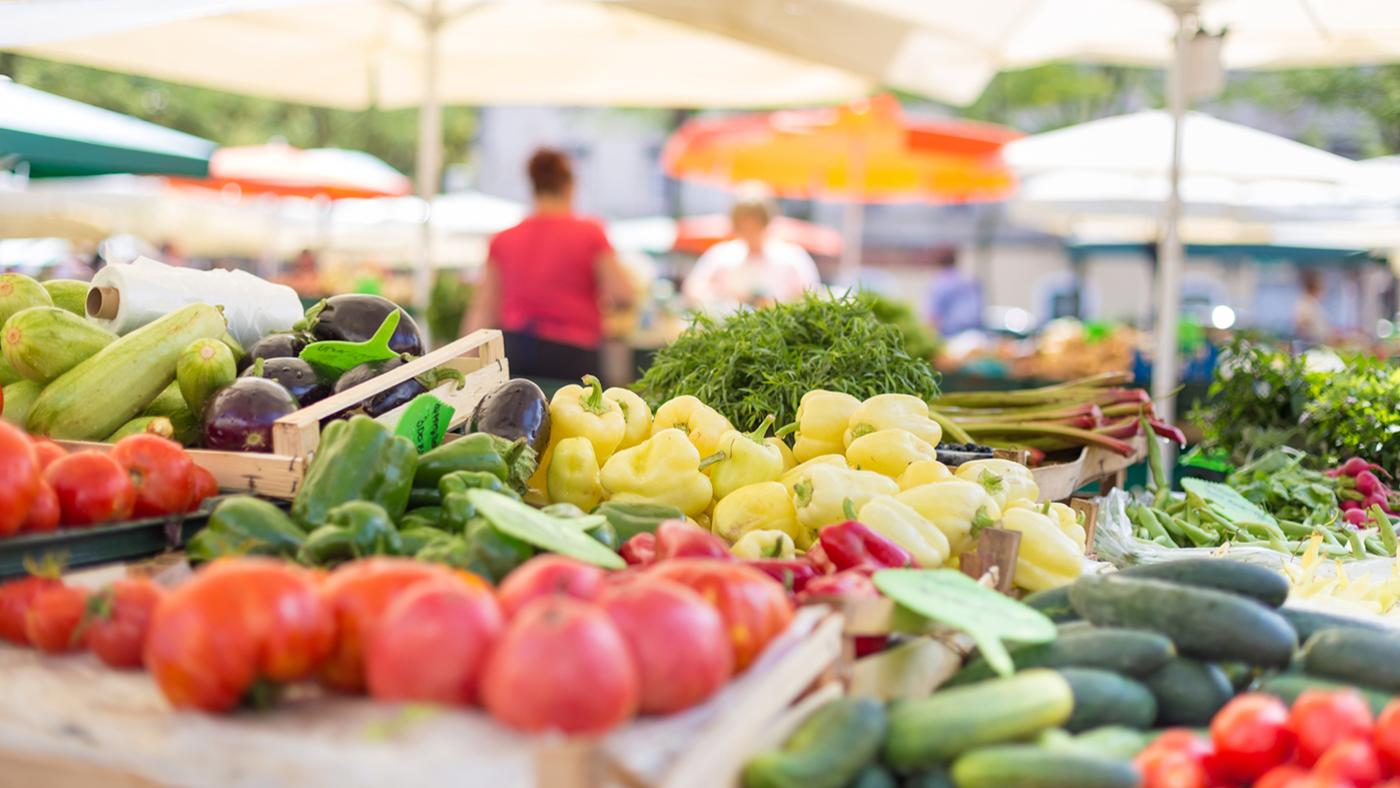The Chicago Chef Trying to Reinvent Indian Food—and Serving a Rare Halal Tasting Menu
Daniel Hautzinger
April 20, 2023

Get more recipes, food news, and stories by signing up for our Deep Dish newsletter.
There’s a moment in the Gaggan Anand episode of the Netflix show Chef’s Table where the acclaimed Indian chef writes to the world-famous restaurant El Bulli asking to work there. Zubair Mohajir watched that episode one day after working a brunch service and was inspired to do the same thing to Anand.
“I picked up my phone and I wrote an email,” Mohajir recalls. “I was like, ‘Hey, man, I want to work for you. I just want to take my shot.’”
It’s easy to envision Mohajir’s life given the dramatic Chef’s Table treatment, in part because he narrates it that way. The chef behind the buzzy Indian street food and tasting menu restaurant Wazwan, he’s an engaging storyteller whose speech is filled with pop culture references, four-letter words, and cinematic flourishes. You can almost hear him narrating his career over light-filled shots of him walking through the streets of Chicago and grinding spices in his kitchen.
Wazwan started as a small supper club and found a permanent home in Wicker Park in 2021. The storefront serves vivid takes on Indian street food with Southeast Asian influence, such as mushroom korma, Tibetan dumplings, and salmon in a Filipino curry broth. A coach house out back offers a tasting menu of courses sourced from throughout India’s history and diverse regions, often served and introduced by Mohajir himself. The food has garnered Mohajir nominations for both the local Jean Banchet Awards and national James Beard Awards.
“God bless the pioneers of the Indian community who brought Indian food [to the United States], but we’ve gotten settled into this greatest hits world,” Mohajir says. If you drove from New York to Los Angeles, he contends that you’d find a similar menu at most of the Indian restaurants you passed along the way—something he finds “embarrassing.”
At Wazwan, “we’re introducing people to stuff that they would never even see in a mainstream restaurant, which is fun,” he says. “I don’t touch chicken tikka masala, I don’t do naan, I don’t do butter chicken. My mom’s biryani is my favorite biryani, so there’s no way I’m going to do biryani, because then she’ll be at the restaurant every day, and I don’t want that either.”
It’s an approach similar to that of Anand, whose late Bangkok restaurant Gaggan is the only Indian restaurant to have been named one of The World’s 50 Best Restaurants. “We’ve kept Indian food as comfort food, and that’s why Indian chefs have not excelled” in the fine dining world, Anand declares in that Chef’s Table.
Mohajir did end up working under Anand after his shot-in-the-dark email—but that’s getting ahead of his story.
Mohajir was born in Chennai in southeast India in 1984 and grew up between that city and Doha, Qatar, where his father worked in oil refineries. Around 1997, “My dad came home one day and said we’re moving to America,” he remembers.
His only reference point for America was basketball, which he had watched devotedly in Doha while on lockdown during the Gulf War. “I was in a closet with a Cup of Noodles because we all thought we were going to get bombed, and on the TV was Michael Jordan,” he says. When his dad said they were moving to Chicago, where he had family, “my [expletive] heart just started beating so hard because I was like, ‘I’m going to Michael Jordan.’”
The Mohajirs lived in various suburbs here before Zubair attended DePaul University for finance, despite disliking school and struggling in it. (Anand also recalls being a bad student who couldn’t focus.) “I just kind of somehow survived it all. I interviewed well enough to get a bank job,” Mohajir says.
He lost his job during the 2008 financial crash. He remembers it as a movie scene: “I feel like if they had drones back then and they were scanning the street, there were grown men crying because their life had fallen apart, and my ass was [expletive] smiling. It just felt like freedom.”
But he had to figure out what to do for a career. He had cooked alongside his mother, who worked part-time as a caterer, since he was a child, imbibing her approach to spices and flavors. Now he was increasingly drawn to food, but first found work in social media. “I literally ordered culinary school applications maybe five times and threw them in the garbage,” he says.
He finally gave in and started a course at Le Cordon Bleu, but quickly decided that he would learn more, without the cost of schooling, by working in a restaurant. He started as a prep cook at The Pump Room in the Gold Coast, then run by Jean-Georges Vongerichten, and worked his way up to sous chef. He went to Napa Valley and got a job at Thomas Keller’s Bouchon. “I felt like I was in [expletive] Narnia,” he says: high-quality ingredients were being grown all around the restaurant and turned into dishes soon after being pulled from the ground.
But the idyll eventually turned hellish. In 2017, wildfires swept the area—and Mohajir’s wife was eight months pregnant. “I’m driving to Bouchon and everything is smoking, and to my right was a laser beam across the Atlas Mountains, and that was the fire front, and to my left was Sonoma, which was already burning.” He turned around, packed up his wife, and they left. Because both of their families were in Chicago, they returned here and had their baby.
Mohajir started a supper club and called it Wazwan, naming it after a 36-course traditional meal from Kashmir. He had begun to take inspiration from elaborate meals from Asia such as wazwan, thali, and omakase, all of which shared characteristics with the Western tasting menu, and wanted to start exploring the flavors and recipes he had grown up eating, smelling, and cooking with his mother. “Every mom or grandma is as crazy, as stubborn, and as talented as any French chef I’ve worked for,” he says. “They’re just plugged in on a different level when it comes to spices.”
Wazwan only uses whole spices, because “spices are like fruit: they have their tones, they have their acidity,” Mohajir says. Their age affects their flavor, as does how you grind them. He recalls watching his mother and grandmother measure out spices—always freshly ground—just by scent and intuition. One day he was in the kitchen and found himself doing the same thing, using his nose instead of a scale. “I just smiled,” he says. “It’s just in our blood, where we smell things and are like, ‘Ok, it needs more black pepper or cardamom.’ You don’t need a [expletive] recipe.”
“French food is great, French sauce is amazing,” Mohajir says. “[But] it’s what, four components? Then I look at what my mom’s doing, or what we do in our culture, and it’s something with [expletive] 30 spices, takes [expletive] eight hours, and the different levels of technique of when it has to come off the heat, then it has to go on a different phase, then it has to broil for this much… That’s a lot of technique, too!”
It was the perfect time for Mohajir to go to work at Gaggan and learn from an innovative chef who was redefining what Indian food could be—and it’s when the restaurant finally responded to him and asked him to come for an apprenticeship. Mohajir, his wife, and their less-than-a-year-old son packed up and moved to Bangkok. “My wife is [expletive] awesome—she didn’t divorce me,” Mohajir says.
He came back from Bangkok “super inspired,” and dove back into his supper club, catching a big break when he came up with a tandoori honey fried chicken sandwich for a halal festival at Navy Pier. He sold 500 pounds of chicken. That’s when he decided that Wazwan could also include casual street food: he kept the chicken sandwich on the menu when he opened Wazwan as a physical restaurant.
All of the food that Wazwan serves, both the street food and the tasting menu, is halal—a rarity in the fine-dining world. “We always get feedback that, ‘We’ve never seen halal food like this,’ because they’re used to just eating food maybe that their mom makes at home,” says Mohajir, who himself keeps halal. “So when they go out to eat, they want to have something different.”
Mohajir fasts during Ramadan, a month in which Muslims do not eat or drink from dawn until sunset, when they break their fast with a feast called iftar. Because he works in a restaurant, he doesn’t have the time to feast—he sneaks food in between preparing the two meal services of the coach house.
“No matter how imperfect of a Muslim that I have been my whole life, fasting is something that’s very serious to me and something that is an amazing spiritual cleanse and awakening,” he says. “It just feels so good.”
For Eid al-Fitr, which marks the end of Ramadan, Mohajir gathers with his large extended family and finally gets to feast. When he first started working in the restaurant industry, his family questioned his decision. Being a cook “is not something to be proud of in our culture,” he says.
But now that he has found success, “everyone has flipped their scripts. Now it’s hilarious, because I walk in and they’ll be like, ‘Oh, you can’t let the chef cook, it’s his day off!’ And I’m like, ‘Oh, now I’m chef, huh?’”







